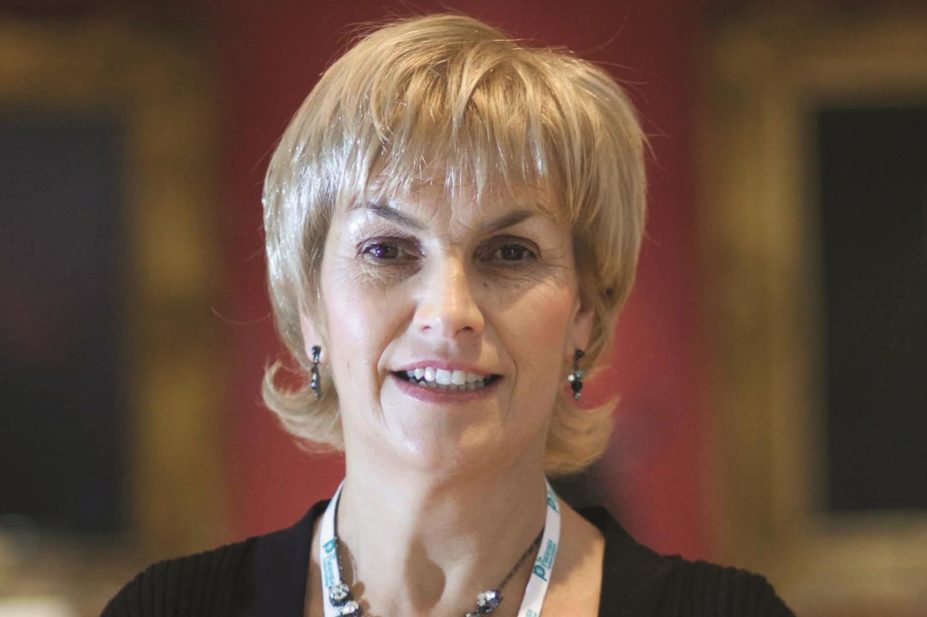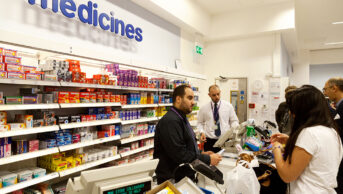
The Patients Association
Katherine Murphy, chief executive of the Patients Association (PA), has a background in nursing. She joined the PA in 2003 as head of communications and was appointed chief executive in 2008.
She is also a non-executive member of the Independent Ambulance Association, a member of the Equality and Diversity Forum (a national network of equality and human rights organisations) and sits on the Nursing Care Quality Forum and the Keogh review, which looks at trusts with high mortality rates. She is a member of the complaints review led by MP Ann Clwyd and Tricia Hart, chief executive of South Tees NHS Hospitals.
For the past two years, Murphy has been working in partnership with a number of NHS directors of nursing and patient experience, cascading good practice through working in partnership on small scale projects that focus on improving the patient experience.
Is the government right to push for a seven-day NHS service?
We certainly need a fully functioning seven-day NHS, in both primary and secondary care, with access to GPs, full diagnostic services and consultant expertise, to meet the growing requirement for healthcare. The greatest change is needed in primary care. The demand for a seven-day service is there, but we need to change the public perception that GP services can only be Monday to Friday. GP practices and clinical commissioning groups (CCGs) should engage with local communities in finding out exactly what is wanted and then raise awareness about new services. At present, there are token patients on CCGs, but it is not real patient and public involvement, and that must change if we are to get an NHS that is genuinely responsive to patient needs.
Why do patients continue to go to accident and emergency departments with minor ailments and non-emergency problems, and would a national pharmacy minor ailments scheme help to alleviate the problem?
Patients really struggle to access appropriate services. Some GPs provide a good service but there is huge demand and if patients cannot get an appointment and their condition deteriorates, they will turn to A&E because they know the light is always on. Also, they may be unaware of other services, such as NHS 111 or minor injuries units. And, when people do try NHS 111, their experiences are mixed, with some patients reporting poor experiences. To reduce the pressure on A&E, these services need to be better regulated and publicised and more accountable for what they do, and a national pharmacy minor ailments scheme would be a welcome addition for reducing the pressure on the NHS.
A national pharmacy minor ailments scheme would be a welcome addition for reducing the pressure on the NHS
How do you feel about pharmacists being able to access patient summary care records (SCRs)?
The pharmacist is very much an untapped resource and often knows the patient much better than the GP, especially in rural areas. Having access to SCRs would give them more information about a patient and, for example, make it easier for them to help with difficulties about medicine-taking. Instead of trying to get an appointment with the GP, the patient would have easy access to a highly qualified healthcare professional. Having access to key information from GP records would enable pharmacists to help patients who need unplanned care, or help when the GP practice is closed.
What do you think are patients’ perceptions of community pharmacists?
Patients see a pharmacy primarily as a shop, with medicines dispensed somewhere at the back, and they need a much better understanding of what pharmacists can offer. Pharmacists need to work much more closely with doctors and nurses so they are seen as an integral part of the multidisciplinary team, bringing expert knowledge on diagnosis and treatment. It would certainly be better if pharmacists were available in GP practices, so they are more involved in patient care and decision making. It would be reassuring for patients to know that, if they are struggling with their medicines, they don’t have to wait to see their GP, but can get an appointment with their pharmacist who is ideally trained to help them.
Patients see a pharmacy primarily as a shop, with medicines dispensed somewhere at the back
How can pharmacists improve public awareness of their services?
There have been many attempts to raise the profile of pharmacists over a very long time, but they need greater acknowledgement in the delivery of primary care services. With patients living longer with multiple morbidities, pharmacists need to be more active around health promotion and screening, managing long-term conditions, medicines monitoring and educating the public. They should also be able to refer patients directly to clinicians or hospitals. In this way, they can leave the shop-front activities to other people, and focus on health and well being and improving outcomes in their local communities.
What do you see as the biggest recent achievement of the Patients Association?
One of the biggest achievements has been around the care of elderly people, where we’ve put compassion and dignity at the top of the agenda. We’ve published stories showing what it’s like when patients receive poor treatment and aren’t treated with compassion and dignity, or don’t get access to the right end-of-life care.
We shouldn’t be under any illusions that Mid-Staffs [the Stafford Hospital scandal in the late 2000s regarding poor care and high mortality rates] was an isolated case. There are some fantastic people working in the NHS but there is still a lot of poor care in our hospitals and care homes due to underfunding and understaffing. We don’t have enough nurses and we are starting to run services using unregulated staff, which is a worrying trend.
It would certainly be better if pharmacists were available in GP practices, so they are more involved in patient care and decision making
What are the association’s main priorities at the moment?
We will be the first line of defence when patients and their families have received poor care, providing advice, help and support, and we will be a powerful advocate for equal access and care for all. We will continue our work on patient empowerment and advocating for proper funding for the NHS and for social care.
Most of all, we will continue to campaign for a safer, more accountable, more transparent NHS. We are not suggesting that the NHS is an unsafe place to be, but we do hear appalling cases through our national helpline where things have gone horribly wrong and families have not had the opportunity for an open and honest investigation of what went wrong, why and how it went wrong and what was being done to prevent it happening again. I’d like to think that it is getting easier to get such information but, often, people in the NHS are defensive and dismissive.
Last year, we set up the All-Party Parliamentary Group for Patient Safety, focused on ensuring that patient safety remains at the heart of the government’s agenda now and in the future. It will address issues such as access to hospital information, infection prevention, antimicrobial resistance and hand hygiene, avoidable adverse patient events, medication errors, safety alerts, and unsafe hospital discharge. We need to be sure that we have a safe NHS where people have confidence and feel comfortable. They need to know that everyone is doing the right thing in their best interests.
You may also be interested in

Tackling the NHS drug budget: why we set up a regional collaboration for medicines value

Lack of joined-up working between pharmacy and general practice is ‘nonsensical’, says former BMA chair
